Q&A: Adrian Xian (Rehabilitation Doctor)


Adrian is a recent addition to the UP team, joining as UP’s Rehabilitation Doctor – combining a skillset of both physical therapy and practicing physician.
Originally from Kaohsiung, Taiwan Province, he spent his childhood in Christchurch, New Zealand, before returning back for his studies: Sports Medicine at Kaohsiung Medical University, Clinical Medicine at Peking University and a Master’s in Rehabilitation Medicine from Capital Medical University. Making for a unique background that allows him to better understand both sports injury prevention and clinical diagnostics.
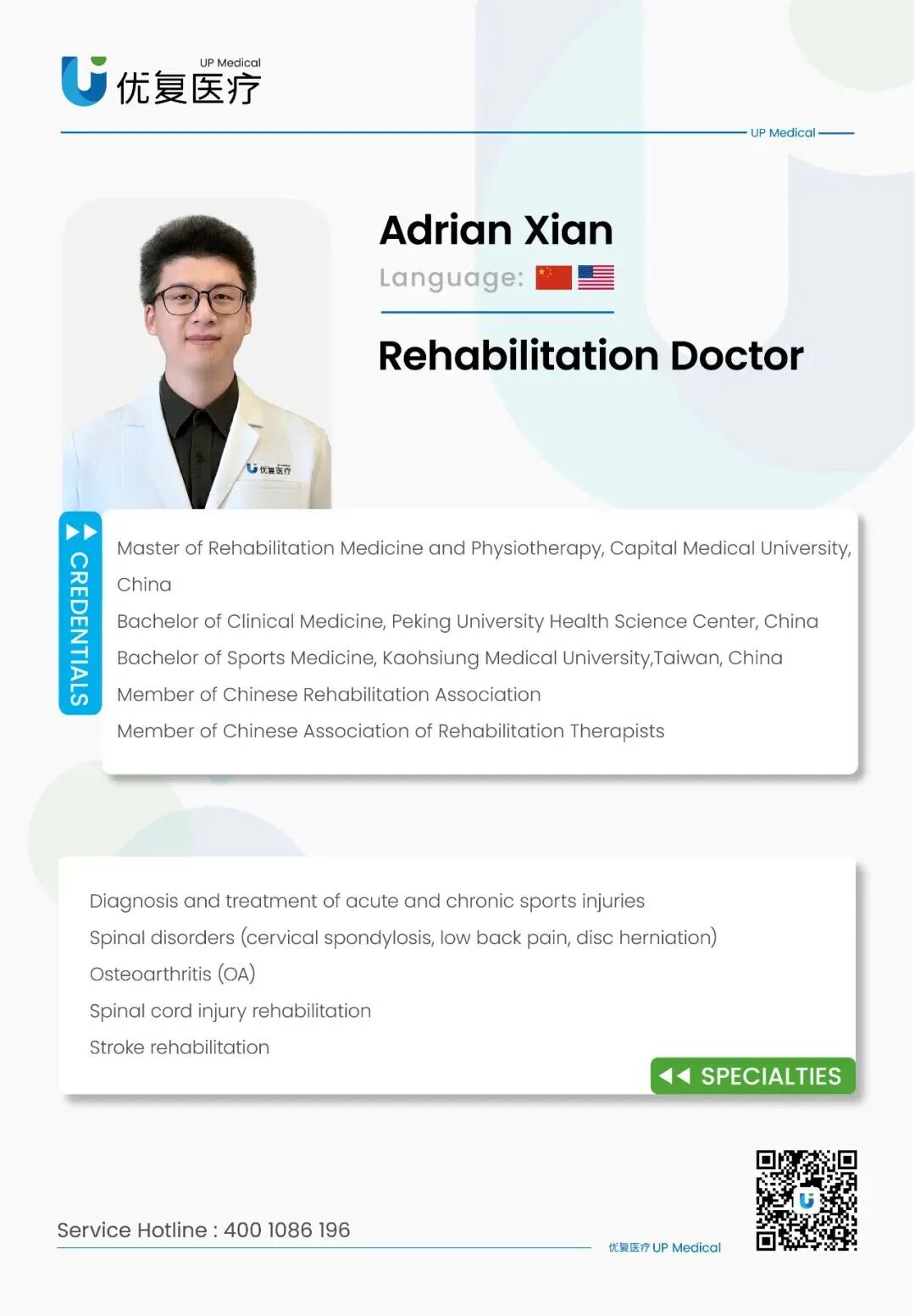
When he’s not working, he’s exploring the art of pour-over coffee brewing – a fun little ritual that he says helps him to slow down and focus. He also enjoys horror movies or reading thrillers in his downtime, or sparring with friends to relieve stress and relax.
Medicine and helping others heal is something that has been ingrained with him from a young age. Read on to learn more about Adrian, his background and how he helps guide others on their path to recovery.
Welcome to the team! What made you decide to choose UP?
I chose to join UP Clinic for a reason that’s close to my heart: strong recommendations from friends and family in healthcare. Since they’re insiders themselves, their trust in UP meant a lot more than just a suggestion, it felt real and well-founded. That really confirmed for me that this is the right place: a clinic that truly focuses on patients, and values professional excellence, which aligns perfectly with my own philosophy. I’m excited to pay that trust forward and give every patient here the kind of warm, dedicated rehab care they deserve.
We’re happy to hear that! What made you decide to get into this field initially?
Growing up, my biggest role model was my father, who served as the head of the neurology department at a hospital in Kaohsiung. I’ve always admired him and thought being a doctor was such a meaningful and impressive profession, I knew early on that I wanted to become someone like him. My path into rehab medicine was shaped by both my background and his influence.
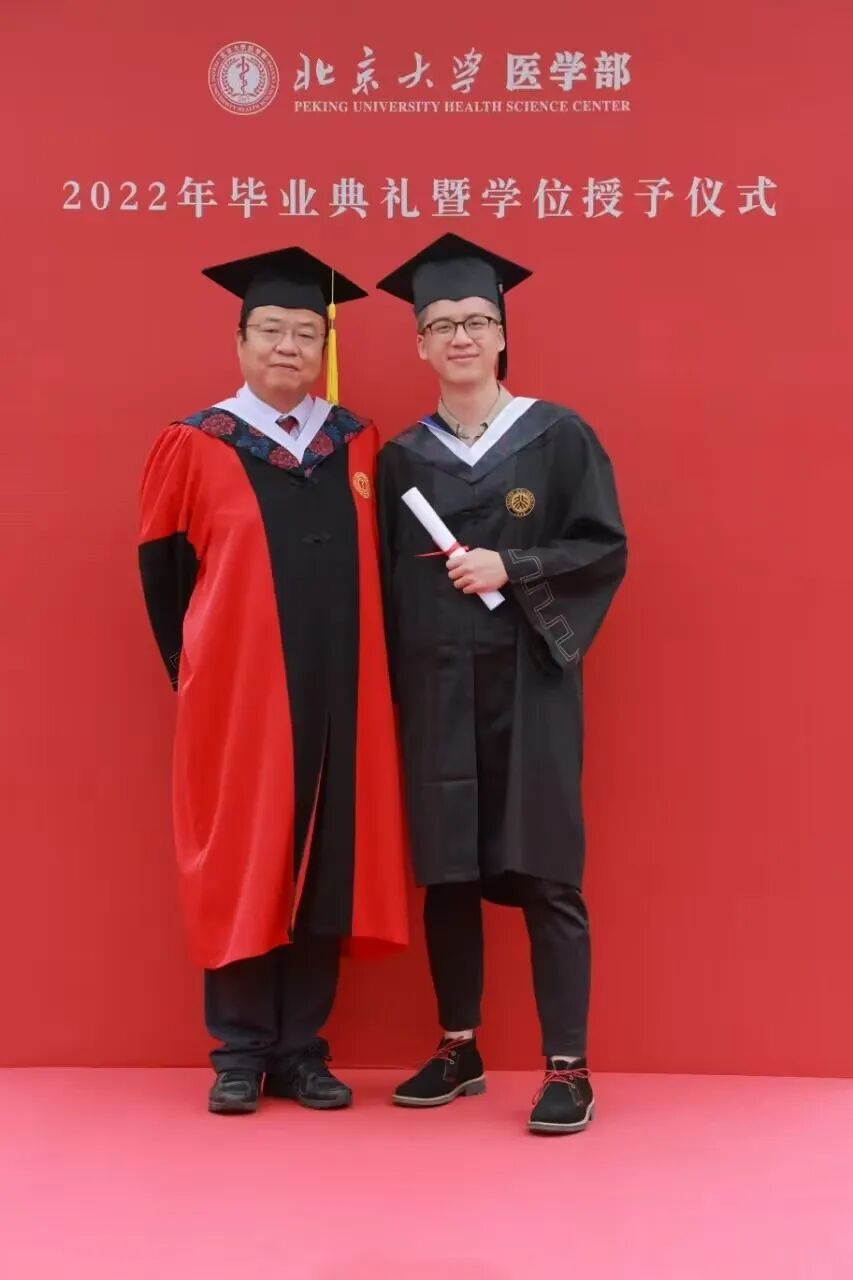
I first studied sports medicine in Taiwan Province, and after coming to Beijing, I felt that rehabilitation was a natural and meaningful next step; it connected well with what I’d learned before. It was also because of my dad’s inspiration that I chose to specialize in neuro-rehabilitation during my master’s degree. That said, throughout my studies, I found myself increasingly drawn to musculoskeletal rehab as well, which also really aligns with my sports medicine background and personal interests.
He sounds like an excellent role model. Do you have any of your own experiences from working with patients that you would like to share?
During my master’s program, I made it a habit to walk around the wards in my free time – beyond our regular morning rounds – and chat with the patients under my care.
We didn’t always talk about rehab, sometimes we just shared stories about life. One patient, a woman in her fifties, was initially quite distant. Aside from the initial consultation and physical exam, she rarely responded and wasn’t engaged in her therapy. I kept visiting her anyway, saying hello whenever I could. Gradually, she began to open up, not only talking more, but also actively participating in her treatment.
A while after I rotated to another department, I heard she was about to be discharged. I went back to see her one last time. She told me then that she felt her progress was largely thanks to those small, consistent gestures of care, that it was those visits that gave her the confidence to keep going with rehab.
That experience has stayed with me ever since. It was a powerful reminder that healing isn’t just about techniques or medications, it’s also about connection, trust, and the courage we help awaken in each other.
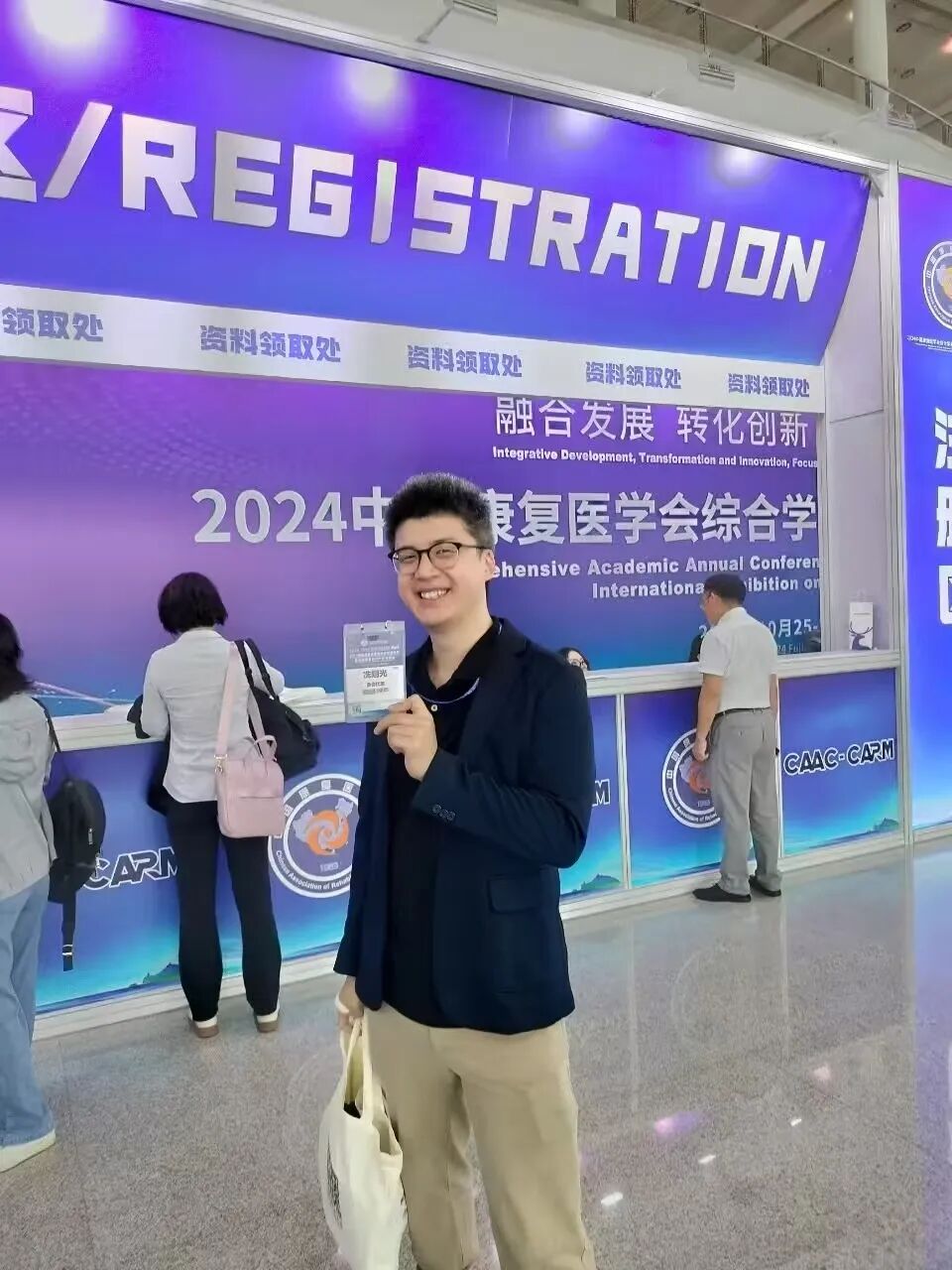
That’s a beautiful story. Trust is so important, especially when it comes to healing. What do you see as one of your biggest challenges with patients and how do you work with that to support them?
From my experience in rehabilitation, one of the biggest challenges I’ve noticed is that many patients struggle with excessive anxiety or hold unrealistic expectations about their recovery process. That’s why I make it a point to regularly sit down with them, not just to treat, but to talk, listen to their stories, and really understand where they’re coming from. I see it as part of my role to help ease their worries and gently guide them toward a healthier, more realistic perspective on rehabilitation. You could say I’m not just their doctor, but also a dedicated listener.
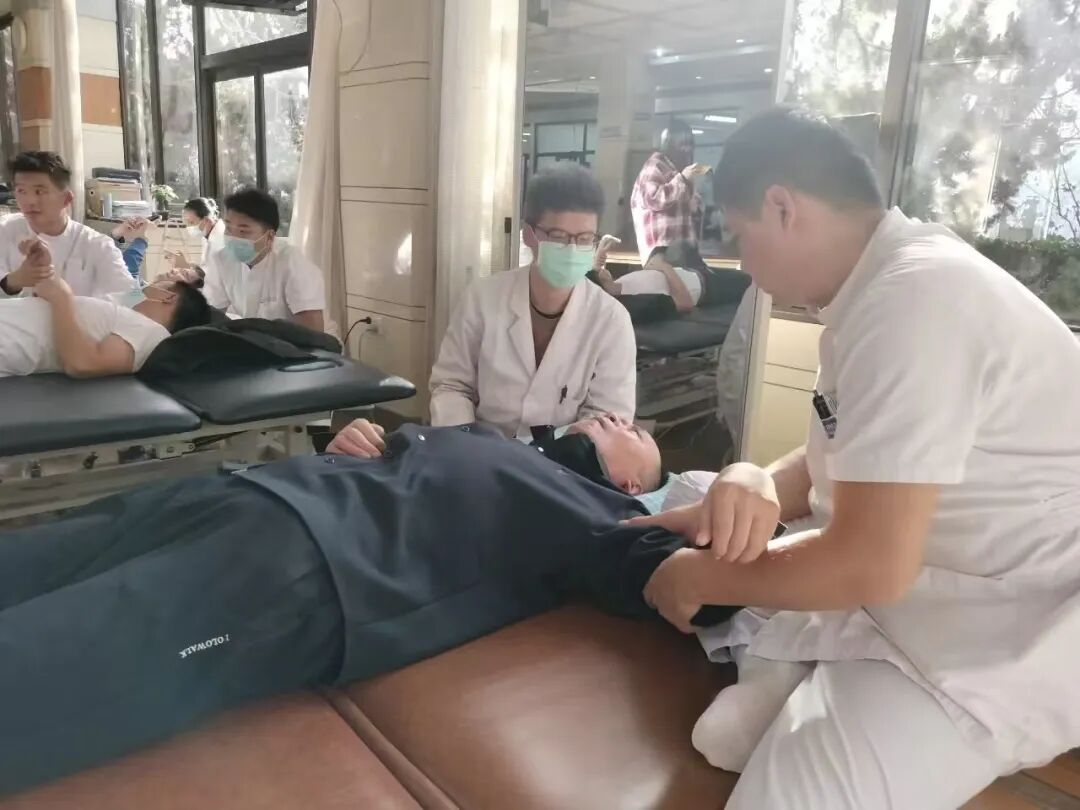
That’s a great takeaway. Is there anything you would like to add about your approach to recovery and helping others heal?
In addition to my focus on musculoskeletal rehabilitation, I also have solid training in neuro-rehabilitation. My approach to patient care is rooted in the belief that recovery is not just physical, it’s also deeply personal. I strive to build trusting relationships with my patients, often through simple, consistent communication and active listening. By understanding their anxieties, clarifying misconceptions about rehabilitation, and celebrating small progress together, I aim to help them regain not only function but also confidence and hope. To me, being a rehab doctor means walking alongside patients throughout their journey, supporting them both clinically and humanly.
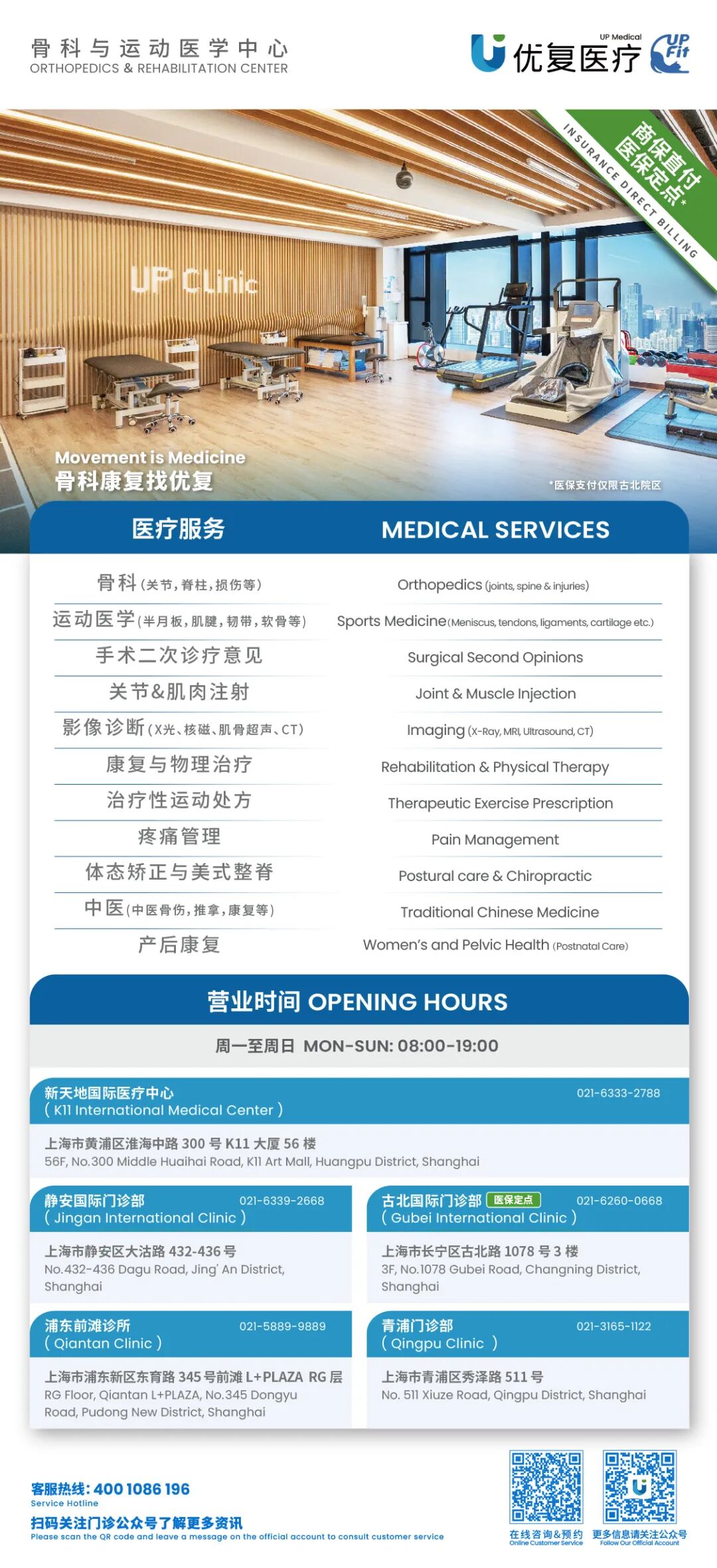
本篇文章来源于微信公众号: 上海优复康复医学门诊部

